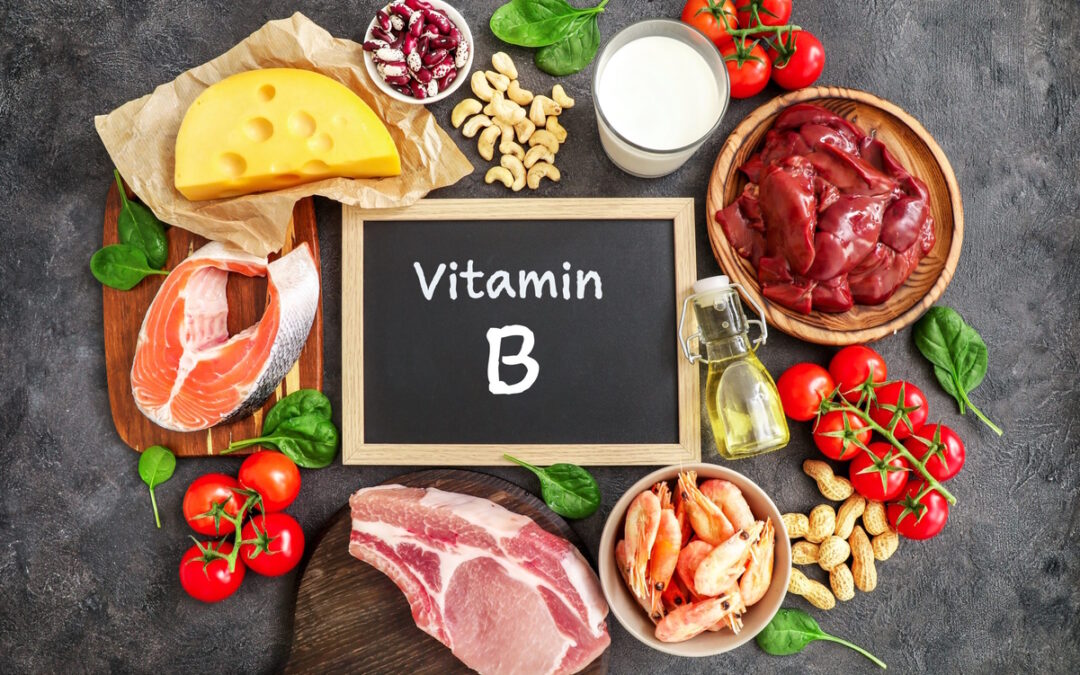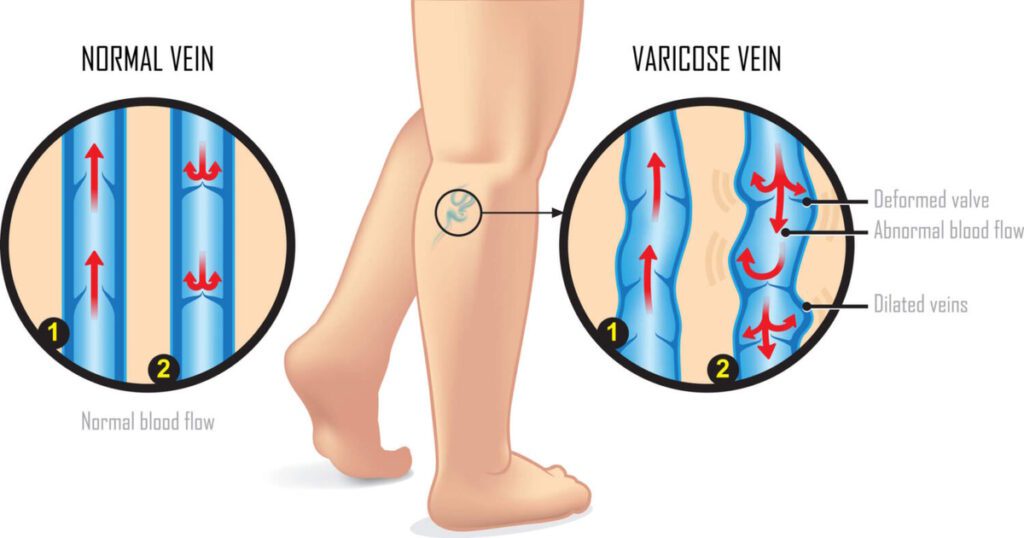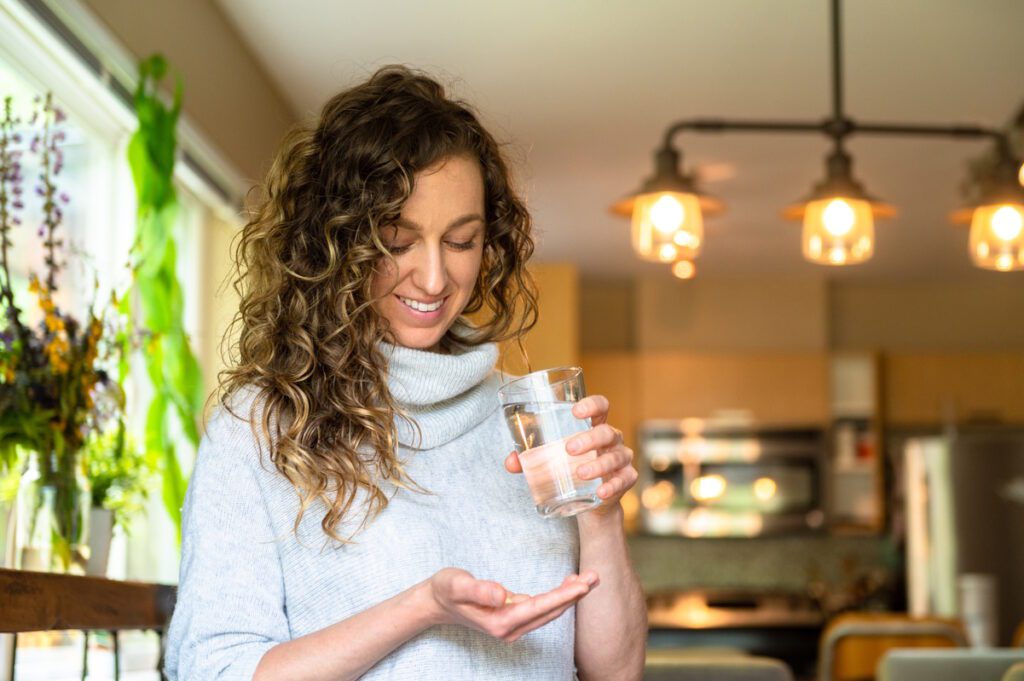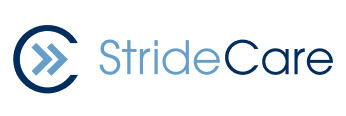Can I Have Healthy Veins By Taking More Vitamin B12?
Author: StrideCare Internal Team

Having Healthy Veins Helps You Avoid These and Other Symptoms
- Painful varicose veins
- An achy or heavy feeling in the legs
- Swelling
- Muscle cramps
- Itchy skin
- Pain that worsens after sitting or standing for long periods
- Restless legs
- Blood clots (vein thrombosis)
- Lost leg hair
- Unsightly spider veins

National Nutrition Month® in March is a perfect time to focus on the importance of making informed choices about the nutritional needs to support healthy veins.
Healthy Veins Can Be Fleeting
Think of your veins as a super network using a series of strong valves to carry deoxygenated blood back to the heart. You also have arteries, which are also blood vessels but slightly different from your veins in that they deliver oxygenated blood from your heart to the rest of your body. The bottom line is that this constant process typically works over and over again without you having to think. It supports many systems critical to your cardiovascular health and other functions of blood. If there is a kink in any part of this venous system, a slew of problems can pop up.
As we age (typically between the ages of 40 and 80), those same veins and arteries that were once healthy don’t work quite like they used to. Veins become diseased, weak, and faulty, which leads to poor blood flow. Arteries can become lined with dangerous plaque and cause blood clots and other issues.

Your once healthy veins can be impacted by a variety of factors besides age, including diet, excess weight, smoking, excessive standing, pregnancy, sedentary lifestyles, and heredity.
In reality, vein disease is extremely common, affecting one out of every three Americans. You may first notice subtle changes to your skin, such as small and painless spider veins. Eventually, you notice large and bulging varicose veins that only multiply as the years go by. And not doing anything about it can lead to more complicated conditions such as deep vein thrombosis, chronic venous insufficiency, and restless legs syndrome.
This is why improving your diet and taking more vitamins now can help you maintain healthy veins longer.
The Power of B Vitamins
Unlike vitamin C or even vitamin E, which stand on their own, B vitamins are a class of water-soluble vitamins with various health purposes. There are eight B vitamins (B1, Thiamine; B2, Riboflavin; B3, Niacin; B5 (pantothenic acid; B6, B7, Biotin; B12, and Folic acid), and they often co-exist in the same foods. Those foods include meat, poultry, dairy products, legumes, and leafy greens.
Dietary supplements (pill form) containing all eight B vitamins are referred to as Vitamin B Complex.
As a family, B vitamins help with everything from blood circulation and cholesterol to reducing the chance of blood clots, strengthening blood vessels, and repairing varicose veins. Vitamin B12 is widely regarded as one of the best in its class at promoting healthy veins. This includes:
- Improving circulation
Individuals with poor blood circulation experience a variety of vein and arterial symptoms, including varicose veins, cold fingers and toes, pins and needles sensations, difficulty walking, fatigue, weakness, and even chest pain. B12 helps the body create and maintain red blood cells to transport oxygen in the body.
- Reducing the threat of blood clots
Up to 100,000 people die each year from blood clots that form in the deep large veins of the pelvis, legs, thighs, or arms. When blood clots form where they aren’t supposed to inside a vein or artery, blood can’t flow past the clot. Vitamin B12 and folic acid help break down a protein called homocysteine that may cause blood clots and increase a person’s risk for heart disease and stroke.
- Keep arteries flexible
Ideally, you want your arteries to maintain their elasticity and flexibility as you age. All too many times, however, we see patients with arterial stiffness that can ultimately lead to many of the issues above, including cardiovascular disease and death. B12 helps keep your veins and arteries pliable and functioning well.

How Much Vitamin B12 Do You Need for Healthy Veins?
The National Institutes of Health (NIH) say a lot of that depends on your age. Below is a chart they came up with based on life stage and recommended amounts of B12.
Recommended Dietary Allowances (RDAs) for Vitamin B12
| Age | Male | Female | Pregnancy | Lactation |
| Birth to 6 months** | 0.4 mcg | 0.4 mcg | ||
| 7–12 months** | 0.5 mcg | 0.5 mcg | ||
| 1–3 years | 0.9 mcg | 0.9 mcg | ||
| 4–8 years | 1.2 mcg | 1.2 mcg | ||
| 9–13 years | 1.8 mcg | 1.8 mcg | ||
| 14–18 years | 2.4 mcg | 2.4 mcg | 2.6 mcg | 2.8 mcg |
| 19+ years | 2.4 mcg | 2.4 mcg | 2.6 mcg | 2.8 mcg |
**Adequate Intake (AI)
The NIH states that most people get enough Vitamin B12 from the foods they eat. With that said, some people have trouble absorbing Vitamin B12 from food. As a result of this B12 deficiency, they may feel tired and weak or experience heart palpitations, weight loss, and loss of appetite. Dietary supplements can help fill those gaps.
Stridecare Wants You to Have Healthy Veins
It’s easy to lose sight of how important it is to have healthy veins when you aren’t in pain, and your legs look great. As we age, we expect our veins and arteries to keep working. If they don’t, it can be overwhelming trying to figure out what to do next. The first step is to live a healthier lifestyle, including eating right and including more vitamins into your diet—whether through the foods you eat or a dietary supplement. B12 is a great example of a vitamin that can promote healthy veins and even repair varicose veins. Results can vary from person to person, but you are better off maintaining consistency with your vitamin intake as you get older.
The whole idea behind healthy veins is that they are working in the background without us having to really do anything. But healthy veins can be fleeting, and it’s up to us to make sure we are making the right lifestyle choices to avoid issues later in life. Our expert doctors and highly skilled team members at Stridecare are proud to offer treatment for a variety of vein and artery diseases that might dramatically impact your quality of life. We only utilize the latest technologies and minimally invasive procedures. On top of that, our physicians at Stridecare are board-certified doctors with additional fellowship training in minimally invasive vascular procedures. That means we are the best at what we do!
Prior to starting any new treatment or questions regarding a medical condition, always seek the advice of your doctor or other qualified health provider. This information is not a substitute for professional medical advice.
StrideCare serves the South Texas area including Houston, San Antonio, Austin, Round Rock, Bastrop, Brushy Creek, Cedar Park, Converse, Georgetown, Hutto, Kyle, Leander, Marble Falls, New Braunfels, Pasadena, Pearland, Pflugerville, San Marcos, Schertz, Houston, Sugar Land, Katy, Webster, Bay City, Clear Lake, Lake Jackson, The Woodlands, Universal City, Spring, Kingwood, Stafford, Conroe, Texas City, Cypress, League City, Bellaire, and more.


